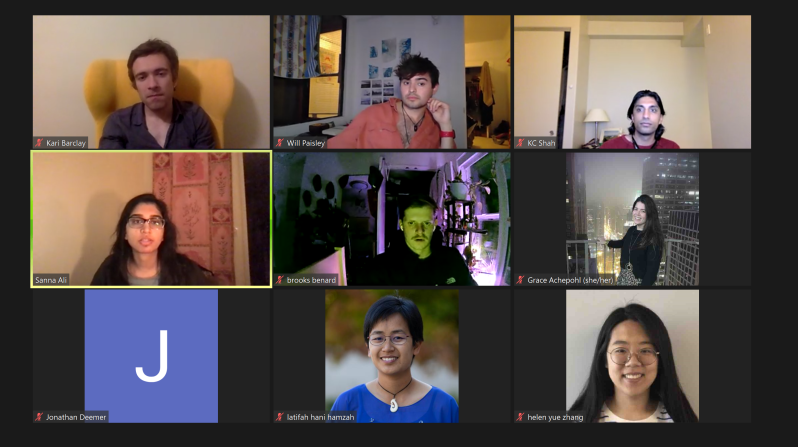The Graduate Student Council (GSC) tentatively ended the possibility of a vote of no confidence against University administration, pushing for “peacemaking and reciprocity rather than confrontation” at its Wednesday meeting. Councilors also raised the possibility of collaborating with University administration on topics including reforming the University’s decentralized leadership structure and producing more responsible COVID-19 guidelines.
The GSC has repeatedly considered issuing a vote of no confidence in response to the University’s last-minute decision to cancel plans to invite students to campus for the winter quarter. The University plans to make a final announcement about inviting juniors and seniors to campus for spring quarter in the next few days and has promised to include student voices in the decision making process.
On Feb. 11, Associated Students of Stanford University (ASSU) leadership met with top University administrators to discuss plans for spring quarter and university decision-making structures. The executive team also sent a controversial memo to University administration in coordination with the GSC urging against plans to invite juniors and seniors to campus.
In a statement on behalf of the Council, GSC co-chair and fifth-year theater and performance studies Ph.D. student Kari Barclay wrote, “We believe that the university leadership present at the meeting intends to engage with ASSU in future decision-making.”
GSC leadership also later met with President Marc Tessier-Lavigne and Provost Persis Drell to discuss the vote of no confidence and the Council’s concerns about the University administration. Barclay said that Tessier-Lavigne and Drell expressed interest in attending an upcoming GSC meeting and having a discussion with the Council, which he saw as an encouraging sign.
“Bringing this up directly with them, in my mind, has been enough to let folks know where we are at and really put the pressure on them to consider student voices more,” Barclay said. “My initial impression is that I think we’ve done enough.”
GSC co-chair Will Paisley ’20 M.A. ’21 said he worries about how a vote of no confidence could impact the image and credibility of the Council.
“Personally, this is not the mode that I usually try to approach things, as an indigenous person,” Paisley said. “To me, it is a little bit too confrontational.”
He said he would prefer having a collaborative conversation with Tessier-Lavigne and Drell before exploring a potential vote of no confidence.
The co-chairs emphasized that the GSC wants to work with University leadership on many areas, but without a clear goal, a vote of no confidence would not be the best way to move forward.
The GSC plans to push for a reformation of the University’s decentralized operational model in its meeting with Tessier-Lavigne and Drell. Councilor K.C. Shah J.D. ’22 said that the lack of transparency and collaboration involved in the University’s controversial decisions are a symptom of that decentralized structure.
“It is so hard to make it seem like your voice is heard,” he said. “I really hope that the President and Provost come and that they take our concerns seriously, specifically around decentralization, because I think that will ameliorate a lot of the concerns going forward.”
Shah also hopes to address the University’s decision-making around COVID-19 guidelines on campus. The University’s guidelines at times seem more like a “liability shield than an actual concern for public health guidance,” Shah said, adding that the on-campus guidelines are sometimes more restrictive than the county guidelines.
The University loosened restrictions on Monday, allowing up to eight students from up three different households to gather outside if they reserve spaces ahead of time. But Shah said he was confused by the move, especially because students from separate households have been gathering outside with impunity for months and restrictions on organized outdoor events remain stringent. These inconsistent restrictions are problematic, Shah said, as they create an environment where students who follow the guidelines may suffer mentally, and where others who feel compelled to break the rules pose a safety risk to the school community.
“We’re never going to know what’s enough until it’s not enough,” Shah said. “Mental health is real, depression and anxiety are real, and they lead to bad outcomes, the worst of which is suicide and death, and this campus is not immune from that.”
Shah said that the University will be able to find a productive middle ground only through a consistent and open-minded dialogue with all members of the Stanford community.
